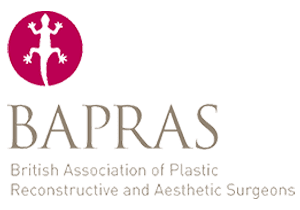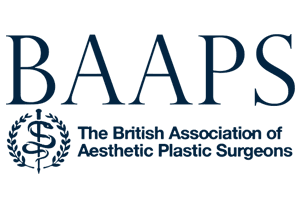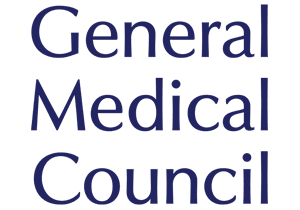
Table of Contents
- How Botulinum Toxin Can Help Treat Bruxism
- What is Bruxism?
- Traditional Treatments for Bruxism
- Botulinum Toxin – A Solution for Bruxism
- What to Expect during the Procedure
- Benefits of Botulinum Toxin for Bruxism
- Is Botulinum Toxin Right for You?
- FAQs about Botulinum Toxin for Bruxism
- Further Reading about Procedures at Cheshire Cosmetic Surgery
How Botulinum Toxin Can Help Treat Bruxism
Do you often wake up with a sore jaw or experience frequent headaches? If so, you may be one of the millions of people suffering from bruxism, a condition characterised by excessive teeth grinding and jaw clenching. While it may seem like a minor inconvenience at first, untreated bruxism can lead to serious dental problems, chronic pain, and even difficulty sleeping.
Surprisingly, many people with bruxism are unaware that they have the condition, as it often occurs during sleep. In fact, research shows that millions of people in the UK experience bruxism, with many cases going undiagnosed and untreated.
At Cheshire Cosmetic Surgery, we understand the frustration and discomfort that comes with bruxism. That’s why we’re here to help you explore a treatment option: botulinum toxin injections.
What is Bruxism?
Bruxism is a common condition that affects people of all ages, although it is most prevalent among adults aged 25-44. The disorder is characterised by the excessive grinding of teeth and clenching of the jaw, which can occur during the day (awake bruxism) or at night (sleep bruxism). While occasional teeth grinding may not cause significant harm, chronic bruxism can lead to a host of dental and health issues.
The exact causes of bruxism are not fully understood, but several factors are believed to contribute to the development of the condition. One of the primary causes is stress and anxiety. When you’re under pressure, your body may respond by tensing your jaw muscles and grinding your teeth, even unconsciously. Other psychological factors, such as frustration, anger, or a competitive personality type, may also increase your risk of developing bruxism.
In some cases, bruxism may be related to underlying medical conditions, such as Parkinson’s disease, epilepsy, or sleep disorders like sleep apnoea. Certain medications, such as antidepressants and antipsychotics, can also trigger teeth grinding as a side effect. Additionally, lifestyle factors, including smoking, excessive alcohol consumption, and caffeine intake, may exacerbate bruxism symptoms.
The symptoms of bruxism can vary from person to person, but some common signs to look out for include:
- Teeth grinding or clenching, which may be loud enough to wake your sleep partner
- Tooth sensitivity or pain
- Tired, tight, or sore jaw muscles
- Earache or facial pain
- Dull headaches, especially in the temples
- Worn, chipped, or flattened teeth
- Damaged tooth enamel
- Indentations on the tongue
- Disrupted sleep
If left untreated, bruxism can have a significant impact on your physical and psychological well-being. The constant grinding and clenching can lead to tooth damage, such as cracks, chips, or even tooth loss. You may also experience chronic jaw pain, temporomandibular joint disorder (TMJ), and difficulty chewing or speaking. The lack of restful sleep due to bruxism can result in daytime fatigue, irritability, and difficulty concentrating, affecting your work performance and personal relationships.
Moreover, the psychological impact of bruxism should not be overlooked. Many people with the condition report feeling self-conscious about the appearance of their worn-down teeth, which can lead to a lack of confidence and a reluctance to smile or speak in social situations. The chronic pain and discomfort associated with bruxism can also contribute to feelings of anxiety, depression, and a reduced quality of life.
Traditional Treatments for Bruxism
If you suspect that you may have bruxism, the first step is to consult with your dentist or GP. They will examine your teeth, jaw, and mouth for signs of wear and tear, and may ask questions about your symptoms and lifestyle habits. In some cases, they may recommend a sleep study to determine if you have sleep bruxism.
Once a diagnosis is confirmed, your dentist will discuss the various treatment options available. Traditionally, the most common approach to managing bruxism has been the use of mouth guards or splints. These custom-made devices fit over your teeth and help to prevent grinding and clenching by providing a protective barrier between your upper and lower teeth.
There are two main types of mouth guards: night guards and day guards. Night guards are worn during sleep and are typically made of a soft, flexible material that cushions your teeth and absorbs the force of grinding. Day guards, on the other hand, are worn during waking hours and are usually made of a harder, more durable material to withstand the increased pressure of daytime clenching.
While mouth guards can be effective in reducing the damage caused by bruxism, they do have some limitations. For one, they do not address the underlying causes of the condition, such as stress or anxiety. As a result, many people find that their bruxism symptoms return once they stop wearing the mouth guard. Additionally, some individuals may find mouth guards uncomfortable or bulky, which can lead to inconsistent use and reduced effectiveness.
Another traditional treatment approach for bruxism is stress management. As stress is a significant contributing factor to the development and progression of the condition, learning effective coping strategies can help to reduce the frequency and severity of grinding and clenching. Some stress-reduction techniques that may be recommended include:
- Cognitive-behavioural therapy (CBT)
- Relaxation exercises, such as deep breathing or progressive muscle relaxation
- Regular exercise
- Mindfulness meditation
- Yoga
- Journaling
- Engaging in hobbies or activities that promote relaxation
Stress management can be a valuable component of a comprehensive bruxism treatment plan, but it may not be sufficient on its own to fully alleviate symptoms, especially in more severe cases.

Additionally, some people may find it challenging to incorporate stress-reduction techniques into their daily routine or may struggle to manage their stress levels effectively.
Botulinum Toxin – A Solution for Bruxism
In recent years, botulinum toxin injections have emerged as a promising treatment option for bruxism. Botulinum toxin is a neurotoxic protein that is derived from the bacterium Clostridium botulinum. When injected in small, controlled doses into specific muscles, botulinum toxin works by temporarily blocking the nerve signals that cause muscle contractions.
In the case of bruxism, botulinum toxin is injected directly into the masseter muscles, which are the large muscles that power the jaw and are primarily responsible for teeth grinding and clenching. By partially paralysing these muscles, botulinum toxin helps to relax the jaw and reduce the intensity and frequency of bruxism episodes.
The use of botulinum toxin for the treatment of bruxism has been gaining popularity in the medical community, with many studies demonstrating its effectiveness.
One of the main advantages of botulinum toxin over traditional bruxism treatments is that it addresses the root cause of the problem by directly targeting the overactive jaw muscles. This means that, unlike mouth guards or stress management techniques, botulinum toxin can provide long-lasting relief from bruxism symptoms, even after the effects of the injections wear off.
Another benefit of botulinum toxin is that it is a minimally invasive procedure that can be performed quickly and easily in a medical office setting. The injections themselves take only a few minutes to administer, and there is no downtime required afterward, meaning you can return to your normal activities immediately.
What to Expect during the Procedure
If you’re considering botulinum toxin injections for the treatment of your bruxism, it’s important to understand what the procedure involves and what you can expect before, during, and after the treatment.
Before the procedure, you’ll have an initial consultation with Dr Dalia who has experience administering botulinum toxin injections for bruxism. On the day of the procedure, you’ll be seated in a comfortable position, and the injection sites will be cleaned and sterilised. Your doctor may apply a topical anaesthetic to minimise any discomfort during the injections.
Using a fine needle, your doctor will then inject small amounts of botulinum toxin directly into the masseter muscles on both sides of your jaw. The number of injections and the dosage of botulinum toxin will be tailored to your individual needs and the severity of your bruxism. The entire procedure typically takes less than 30 minutes.
After the injections, you may experience some mild swelling, redness, or bruising at the injection sites, but these side effects should subside within a few days. You may also feel a slight heaviness or weakness in your jaw muscles, but this is a normal and temporary effect of the botulinum toxin.
Most people begin to notice an improvement in their bruxism symptoms within a few days to a week after the injections, with the full effects becoming apparent within two weeks. The results of botulinum toxin injections typically last for 3-6 months, after which time the treatment can be repeated as needed to maintain the benefits.

It’s important to note that while botulinum toxin injections are generally safe and well-tolerated, there are some potential side effects and risks to be aware of. These may include:
- Pain, swelling, or bruising at the injection sites
- Headache or flu-like symptoms
- Temporary muscle weakness or drooping in the treated area
- In rare cases, an allergic reaction to the botulinum toxin
Benefits of Botulinum Toxin for Bruxism
Botulinum toxin injections offer a range of benefits for people suffering from bruxism. Some of the key advantages of this treatment approach include:
- Effective relief from bruxism symptoms: By targeting the overactive jaw muscles directly, botulinum toxin injections can significantly reduce the frequency and intensity of teeth grinding and clenching, leading to a notable improvement in symptoms such as jaw pain, headaches, and tooth sensitivity.
- Long-lasting results: Unlike traditional bruxism treatments that may only provide temporary relief, the effects of botulinum toxin injections can last for several months, allowing you to enjoy sustained improvement in your symptoms.
- Minimally invasive: Botulinum toxin injections are a non-surgical, minimally invasive treatment option that requires no anaesthesia or downtime. This means you can return to your normal activities immediately after the procedure.
- Customisable treatment: The dosage and injection sites of botulinum toxin can be tailored to your individual needs and the severity of your bruxism, ensuring that you receive the most effective and personalised treatment possible.
- Improved sleep quality: By reducing the frequency and intensity of night time teeth grinding, botulinum toxin injections can help you achieve more restful and uninterrupted sleep, leading to improved daytime functioning and overall quality of life.
- Reduced risk of dental damage: By addressing the root cause of bruxism, botulinum toxin injections can help to prevent the long-term dental damage associated with chronic teeth grinding, such as worn or chipped teeth, tooth sensitivity, and even tooth loss.
- Improved facial aesthetics: In addition to its therapeutic benefits, botulinum toxin injections can also have a positive impact on your facial appearance. By relaxing the overactive jaw muscles, the treatment can help to slim and contour the jawline, creating a more balanced and harmonious facial profile.
While botulinum toxin injections are not a permanent cure for bruxism, they offer a safe, effective, and long-lasting solution for managing the symptoms of this common condition. By combining botulinum toxin injections with other strategies such as stress management and lifestyle modifications, you can achieve optimal results.
Is Botulinum Toxin Right for You?
If you’re struggling with the symptoms of bruxism and have found traditional treatments to be ineffective or unsatisfactory, botulinum toxin injections may be a viable option for you. However, it’s important to carefully consider whether this treatment approach is right for your individual needs and circumstances.
To determine if you’re a good candidate for botulinum toxin injections for bruxism, ask yourself the following questions:
- Do you experience frequent or severe symptoms of bruxism, such as jaw pain, headaches, or tooth sensitivity?
- Have you tried other treatments for bruxism, such as mouth guards or stress management techniques, without satisfactory results?
- Are you in good overall health and free from any medical conditions that could contraindicate botulinum toxin injections, such as neuromuscular disorders or bleeding disorders?
- Are you willing to commit to regular follow-up treatments to maintain the benefits of botulinum toxin injections over time?
- Do you have realistic expectations about the potential benefits and limitations of botulinum toxin injections for bruxism?
If you answered yes to most or all of these questions, botulinum toxin injections may be a good fit for you. However, the best way to determine your candidacy for this treatment is to schedule a consultation at Cheshire Cosmetic Surgery.
FAQs about Botulinum Toxin for Bruxism

How long does it take for botulinum toxin injections to start working for bruxism, and how long do the effects typically last?
Most patients begin to notice an improvement in their bruxism symptoms within 3-7 days after receiving botulinum toxin injections, with the full effects becoming apparent within 2 weeks. The results typically last for 3-6 months, after which time the treatment can be repeated as needed to maintain the benefits.
Are there any specific precautions or aftercare instructions I need to follow after receiving botulinum toxin injections for bruxism?
After receiving botulinum toxin injections for bruxism, it’s important to avoid rubbing or massaging the treated area for at least 24 hours to prevent the toxin from spreading to unintended muscles. You should also avoid lying down for 4 hours after the procedure and refrain from engaging in strenuous exercise for 24 hours.
Will I need to take time off work or other activities after receiving botulinum toxin injections for bruxism?
One of the advantages of botulinum toxin injections for bruxism is that there is no downtime required after the procedure. Most patients are able to return to work and other normal activities immediately after receiving the injections, although you may experience some mild swelling or bruising at the injection sites for a few days.
Can botulinum toxin injections be combined with other treatments for bruxism, such as mouth guards or stress management techniques?
Yes, botulinum toxin injections can be used in conjunction with other bruxism treatments for a comprehensive approach to managing symptoms.
Are there any long-term side effects or risks associated with repeated botulinum toxin injections for bruxism?
When administered by a qualified and experienced provider, botulinum toxin injections are considered a safe and well-tolerated treatment option for bruxism. While there is a risk of temporary side effects such as bruising, swelling, or muscle weakness, these typically resolve within a few days to a week. Long-term side effects are rare when the injections are performed properly and at the recommended intervals. However, as with any medical procedure, it’s important to discuss the potential risks and benefits with your provider before deciding if botulinum toxin injections are right for you.
Medical References for Botulinum Toxin for Bruxism
- Efficacy of botulinum toxin in the treatment of bruxism: https://pubmed.ncbi.nlm.nih.gov/26664228/
- Bruxism and Botulinum Injection: Challenges and Insights: https://pubmed.ncbi.nlm.nih.gov/32918131/
- Bruxism – is botulinum toxin an effective treatment?: https://pubmed.ncbi.nlm.nih.gov/24566550/
- Botulinum Toxin A for bruxism: a systematic review: https://pubmed.ncbi.nlm.nih.gov/28073778/
- Effects of Botulinum Toxin on Jaw Motor Events during Sleep in Sleep Bruxism Patients: A Polysomnographic Evaluation: https://pubmed.ncbi.nlm.nih.gov/216057
Further Reading about Procedures at Cheshire Cosmetic Surgery
- Read more about Botulinum Toxin for Axillary Hyperhidrosis
- Read more about What Is Profhilo?
- Read more about Causes and Treatment for Scarring Hair Loss
- Read more about Causes and Treatment for Scarring Hair Loss
- Read more about Causes and Treatment for Eczema






